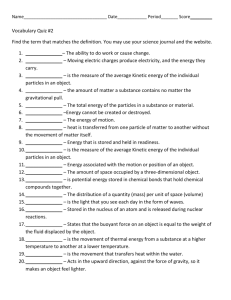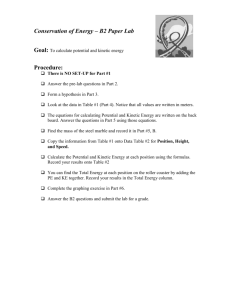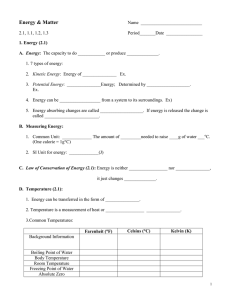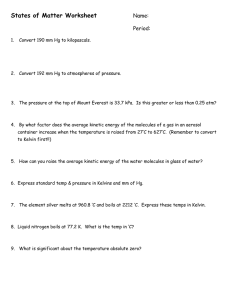Calculations Involving Heat Temperature (T)
advertisement
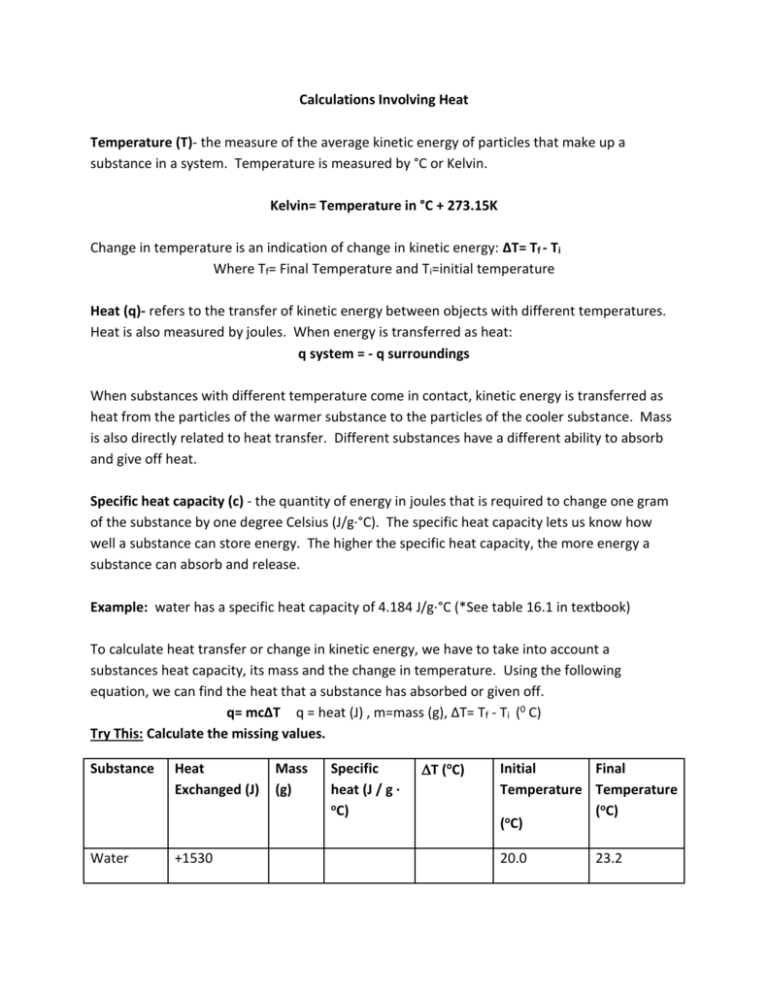
Calculations Involving Heat Temperature (T)- the measure of the average kinetic energy of particles that make up a substance in a system. Temperature is measured by °C or Kelvin. Kelvin= Temperature in °C + 273.15K Change in temperature is an indication of change in kinetic energy: ΔT= Tf - Ti Where Tf= Final Temperature and Ti=initial temperature Heat (q)- refers to the transfer of kinetic energy between objects with different temperatures. Heat is also measured by joules. When energy is transferred as heat: q system = - q surroundings When substances with different temperature come in contact, kinetic energy is transferred as heat from the particles of the warmer substance to the particles of the cooler substance. Mass is also directly related to heat transfer. Different substances have a different ability to absorb and give off heat. Specific heat capacity (c) - the quantity of energy in joules that is required to change one gram of the substance by one degree Celsius (J/g∙°C). The specific heat capacity lets us know how well a substance can store energy. The higher the specific heat capacity, the more energy a substance can absorb and release. Example: water has a specific heat capacity of 4.184 J/g∙°C (*See table 16.1 in textbook) To calculate heat transfer or change in kinetic energy, we have to take into account a substances heat capacity, its mass and the change in temperature. Using the following equation, we can find the heat that a substance has absorbed or given off. q= mcΔT q = heat (J) , m=mass (g), ΔT= Tf - Ti (0 C) Try This: Calculate the missing values. Substance Heat Exchanged (J) Water +1530 Mass (g) Specific heat (J / g · oC) T (oC) Initial Final Temperature Temperature (oC) o ( C) 20.0 23.2 Aluminum +3600 Steam -1500 Mercury +825 14 95 26 20 14 48 -25 152 116 42.0
